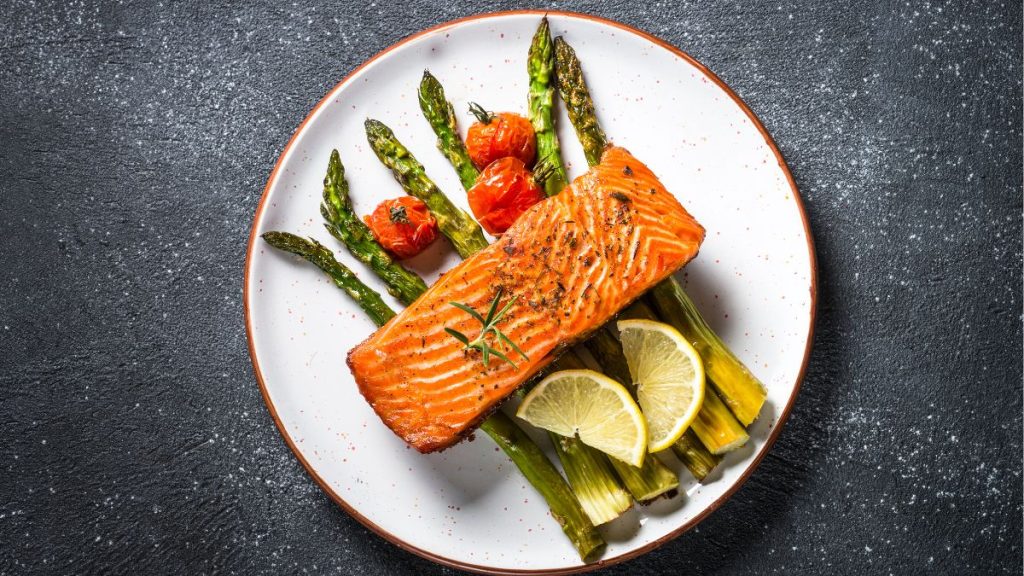When it comes to building muscle, most people focus on protein-rich foods like chicken, beef, and eggs. But vegetables play a crucial role in muscle growth, too. Packed with essential vitamins, minerals, fiber, and even some protein, the right vegetables can enhance muscle recovery, boost endurance, and optimize performance. Let’s explore the best vegetables to help build muscle and how they contribute to strength and growth.
Why Are Vegetables Important for Muscle Growth?
Muscle building isn’t just about protein—it’s about how well your body absorbs and utilizes nutrients. Vegetables provide:
- Vitamins and minerals like magnesium, potassium, and iron to support muscle contraction and oxygen transport.
- Antioxidants that reduce inflammation and speed up recovery.
- Fiber for better digestion and nutrient absorption.
- Nitrates that enhance blood flow and exercise performance.
Adding the right vegetables to your diet can improve your training results and help you gain lean muscle faster.
What Are the Best Vegetables to Help Build Muscle?
1. Spinach: A Natural Strength Booster
Spinach is one of the most powerful muscle-building vegetables due to its high iron and nitrate content.
Benefits:
- Rich in iron, which supports oxygen transport to muscles.
- Contains nitrates, which enhance blood flow and endurance.
- High in magnesium, which supports muscle function and recovery.
Tip: Add spinach to smoothies, omelets, or salads for an easy nutrition boost.
2. Broccoli: The Ultimate Recovery Vegetable
Broccoli is packed with vitamins C and K, which play a role in muscle repair and immune function.
Benefits:
- Contains sulforaphane, which reduces muscle inflammation.
- High in fiber, improving digestion and nutrient absorption.
- Provides calcium, which supports strong muscle contractions.
Tip: Steam or stir-fry broccoli to retain its nutrients while adding flavor.
3. Sweet Potatoes: A Muscle-Fueling Carb Source
Carbohydrates are essential for muscle growth, and sweet potatoes provide slow-digesting carbs that fuel workouts.
Benefits:
- Rich in beta-carotene, which helps reduce muscle soreness.
- Provides complex carbs, ensuring sustained energy levels.
- High in potassium, which prevents muscle cramps.
Tip: Bake or mash sweet potatoes for a post-workout meal with lean protein.
4. Kale: The Muscle Recovery Powerhouse
Kale is loaded with antioxidants, making it one of the best vegetables to speed up muscle recovery.
Benefits:
- Contains vitamin C, which helps repair muscle tissues.
- Provides calcium, essential for muscle contractions.
- Rich in phytonutrients, which support overall health.
Tip: Toss kale into a salad or blend it into a protein smoothie.
5. Beets: The Endurance Enhancer
Beets contain nitrates, which improve blood flow and endurance during workouts.
Benefits:
- Boosts oxygen delivery to muscles.
- Reduces muscle fatigue, allowing longer workouts.
- Provides natural sugars, offering quick energy.
Tip: Drink beet juice before a workout for an endurance boost.
6. Brussels Sprouts: A Nutrient-Dense Muscle Builder
Brussels sprouts are packed with protein and essential nutrients to help build muscle.
Benefits:
- High in fiber, improving digestion and gut health.
- Rich in vitamin K, which supports strong bones and muscles.
- Contains antioxidants, reducing exercise-induced stress.
Tip: Roast Brussels sprouts with olive oil and garlic for a delicious side dish.
7. Bell Peppers: The Vitamin C Powerhouse
Vitamin C plays a critical role in collagen production, which helps maintain strong muscles. Bell peppers provide more vitamin C than oranges.
Benefits:
- Supports muscle tissue repair and growth.
- Reduces oxidative stress from intense training.
- Enhances iron absorption, improving oxygen transport.
Tip: Add sliced bell peppers to stir-fries or eat them raw with hummus.
8. Asparagus: The Protein-Packed Green
Asparagus is one of the few vegetables with a decent amount of protein.
Benefits:
- Contains asparagine, which aids muscle recovery.
- High in B vitamins, boosting energy metabolism.
- Acts as a natural diuretic, preventing bloating and water retention.
Tip: Grill or steam asparagus and serve with lean protein for a muscle-friendly meal.
How to Incorporate These Vegetables into Your Diet
To maximize muscle growth, include these vegetables in your daily meals:
- Post-workout meals: Pair sweet potatoes with lean protein like chicken or fish.
- Smoothies: Blend spinach, kale, or beets with protein powder for a nutrient-packed shake.
- Stir-fries: Toss bell peppers, Brussels sprouts, and broccoli with lean meat.
- Salads: Add a mix of kale, asparagus, and bell peppers for a muscle-boosting side dish.
Key Takeaways: Why Vegetables Matter for Muscle Growth
- Vegetables provide essential vitamins, minerals, and fiber for muscle recovery.
- Nitrate-rich vegetables like spinach and beets improve endurance.
- Sweet potatoes and bell peppers fuel workouts and muscle repair.
- Including a variety of vegetables ensures better nutrient absorption and digestion.
Muscle growth isn’t just about protein shakes and heavy weights. The right vegetables can enhance strength, improve recovery, and support long-term muscle health. Start adding these best vegetables to help build muscle into your diet today for better gains and overall performance.
Read Next…
- Best Pre-Workout Meal for Muscle Building: What to Eat Before Training
- The Role of Diet in Building Muscle: How Much Does It Matter?
- How to Add Side Dishes to a Meal Plan for Weight Loss When Your Main Course Is Protein
- Elderly Homecare: How Fitness Routines Can Improve Senior Health
- Rest and Recovery: How It Boosts Fat Loss and Muscle Growth




